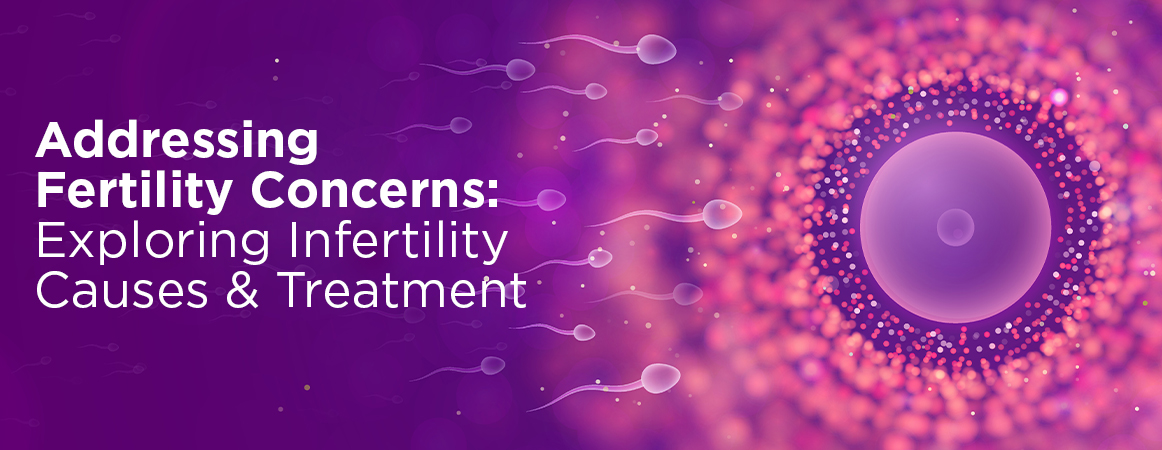Addressing Fertility Concerns: Exploring Infertility Causes and Treatment
Infertility, defined as the inability to conceive after a year of regular unprotected intercourse, affects many couples. In such situations, seeking assistance from top gynecologists in Karachi can offer a ray of hope. Female infertility can be caused by various factors, impacting a woman’s ability to conceive.
Understanding Female Infertility
Female infertility refers to the inability of a woman to conceive after regular, unprotected intercourse for a year or more. Understanding the potential causes of female infertility is crucial for effective diagnosis and treatment.
1. Ovulation Disorders
Ovulation disorders are among the leading causes of female infertility. These conditions disrupt the regular release of eggs from the ovaries, hindering conception. Common ovulation disorders include polycystic ovary syndrome (PCOS), hormonal imbalances, and premature ovarian failure.
2. Fallopian Tube Blockages
The fallopian tubes are essential in the conception process. Blockages or damage to these tubes can prevent the sperm from reaching the egg or the fertilized egg from traveling to the uterus, leading to infertility.
3. Endometriosis
Endometriosis is a condition where the tissue lining the uterus (endometrium) grows outside the uterus, typically on the ovaries, fallopian tubes, or other pelvic organs. This can cause inflammation, scarring, and the formation of adhesions, which may affect fertility.
4. Uterine Abnormalities
Structural issues in the uterus, such as uterine fibroids, polyps, or a septate uterus, can interfere with embryo implantation and pregnancy.
5. Age-Related Decline in Fertility
As women age, their fertility naturally declines. The quantity and quality of eggs diminish, making conception more challenging, particularly after the age of 35.
6. Hormonal Imbalances
Hormonal imbalances, such as problems with the thyroid gland or conditions like hyperprolactinemia, can disrupt the menstrual cycle and affect fertility.
7. Chronic Health Conditions
Certain chronic health conditions, such as diabetes, autoimmune disorders, and uncontrolled celiac disease, can impact fertility.
8. Lifestyle Factors
Unhealthy lifestyle choices, such as smoking, excessive alcohol consumption, and being overweight or underweight, can negatively influence fertility.
Seeking Help from Top Gynecologists in Karachi
When faced with concerns about female fertility, seeking guidance from a gynecologist specialist in Karachi is crucial. These experts are skilled in diagnosing the underlying causes of infertility and providing personalized treatment options.
Diagnosis of Female Infertility
The diagnosis of female infertility typically involves a comprehensive evaluation at the best gynecologist hospital in Karachi, such as Memon Medical Institute Hospital, known for its expertise in fertility evaluation and treatment.
1. Medical History and Physical Examination
The gynecologist will start by gathering a detailed medical history, including previous pregnancies, menstrual cycles, and any underlying health conditions. A physical examination may also be conducted to assess overall health and identify any visible issues.
2. Ovulation Tracking
For women with irregular menstrual cycles or suspected ovulation disorders, ovulation tracking may be recommended. This involves monitoring changes in basal body temperature, and cervical mucus, or using ovulation predictor kits to identify the fertile window.
3. Hormone Testing
Hormonal imbalances can significantly impact fertility. Blood tests may be conducted to measure hormone levels, such as progesterone, estrogen, luteinizing hormone (LH), and follicle-stimulating hormone (FSH).
4. Pelvic Imaging
Imaging studies, such as transvaginal ultrasound or hysterosalpingography (HSG), may be performed to evaluate the condition of the uterus and fallopian tubes.
5. Ovarian Reserve Testing
The quantity and quality of a woman’s eggs is evaluated by ovarian reserve testing. This evaluation is especially relevant for women over the age of 35.
Infertility Treatments
Gynecologists in Karachi offer various fertility treatments tailored to the individual’s specific needs and the underlying cause of infertility.
1. Ovulation Induction
For women with ovulation disorders, ovulation induction may be recommended. This involves the use of fertility medications to stimulate egg production and regulate the menstrual cycle.
2. Intrauterine Insemination (IUI)
IUI involves placing prepared sperm directly into the uterus during the woman’s fertile window, increasing the chances of sperm reaching the egg.
3. In Vitro Fertilization (IVF)
IVF is a highly effective fertility treatment that involves the retrieval of eggs from the woman’s ovaries, fertilization with sperm in a laboratory, and the transfer of the resulting embryo(s) into the uterus.
Conclusion
Facing fertility concerns can be emotionally challenging for women hoping to start a family. However, with the expertise of top gynecologists in Karachi and advancements in reproductive medicine, many cases of female infertility can be effectively diagnosed and treated. Understanding the potential causes of infertility and seeking timely medical intervention can bring hope and success on the journey to motherhood.


